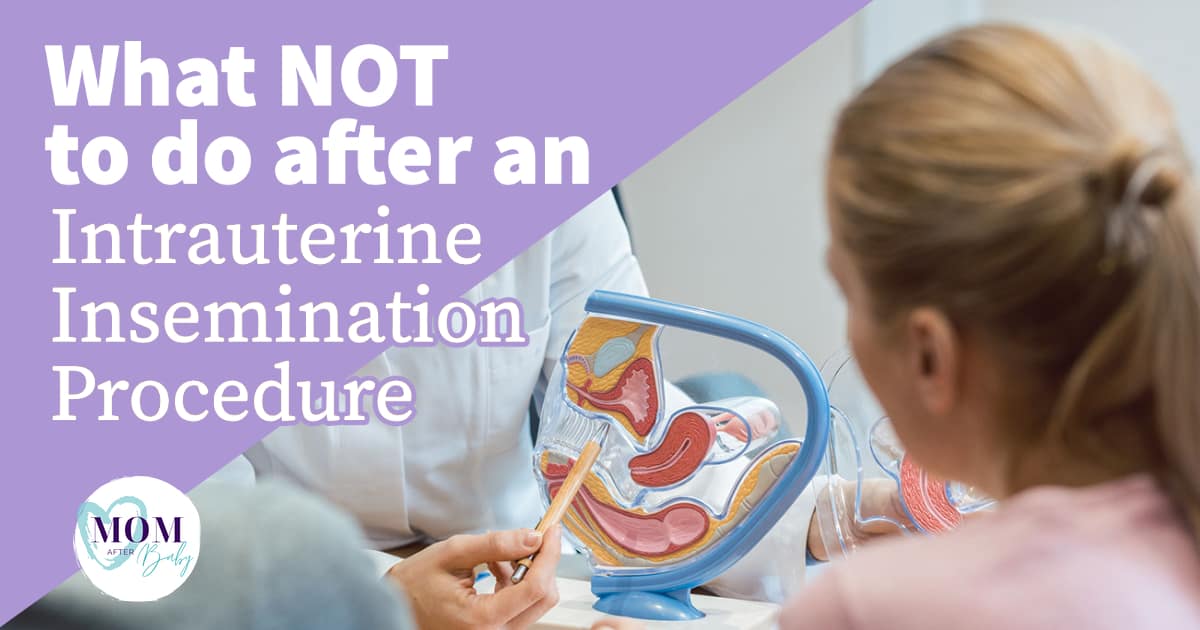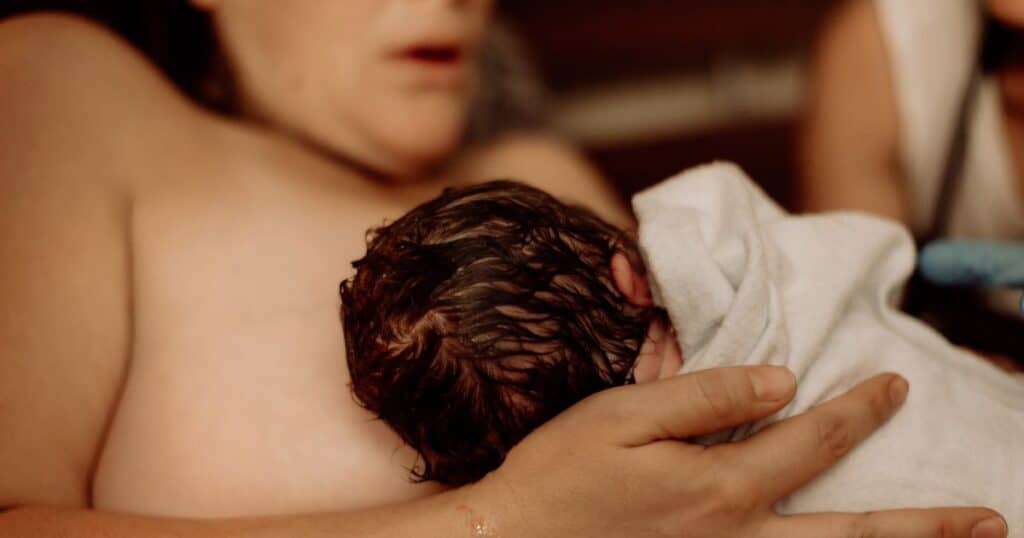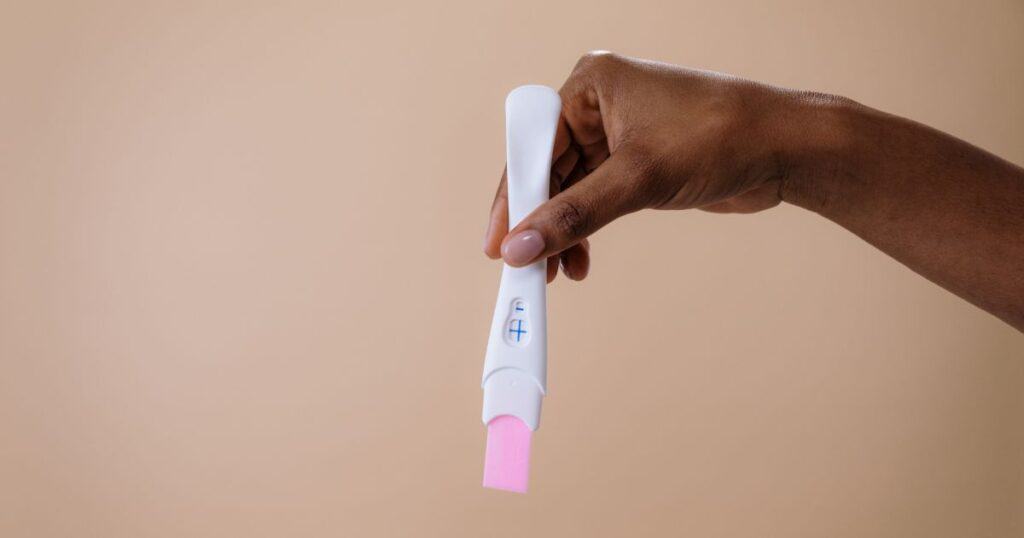What NOT TO DO After IUI Procedure
This post may contain affiliate links that I may receive a commission from if you click & buy. In addition, the information on this site is NOT intended to be medical advice. See my full policy for more information.
If you’re a woman who has undergone or will be going through the IUI process to aid in your fertility journey, there are a few things you’ll want to avoid doing after the procedure. In this article, we’ll talk all about what not to do after an IUI (as well as what to expect).
What is an IUI?
An IUI or intrauterine insemination is a common procedure used to help women and couples who need assistance trying to conceive. It is considered a more ‘natural’ and less invasive option than in-vitro fertilization.
IUI success rates range from 10-20% a cycle depending on age, reproductive health, donor sperm, fallopian tube patency, and other factors that affect a successful pregnancy.
Approximately 1 in 5 women in the United States struggles with their fertility, meaning they tried to conceive for 1 year without getting pregnant.
Many of these women may have not even known they had fertility concerns until actually trying to conceive while others may have taken a Women’s Fertility Test in preparation to conceive to find out that fertility doctors, infertility issues, and fertility medications are in their future.
As a result, they turn to their doctors and medical providers to assist them in navigating this journey of unexplained infertility.
If you’ll be having an IUI or recently had one to help increase your chances of pregnancy, keep on reading to learn what not to do after the IUI procedure.
What Not To Do After IUI Procedure (8 Things NOT To Do)
Don’t Let Your Stress Levels Escalate
For the best possible IUI results, keeping stress at bay is important. This means taking extra steps, if needed, to prioritize your mental health and physical health to increase those chances of success.
Some couples have noted that talking to a therapist while simultaneously seeking fertility support was helpful in calming their nerves and minimizing stress throughout the process.
However, just remember, you’re only human and it will be normal to feel a little nervous or anxious as you wait to find out the success of the IUI procedure.
Don’t Take Part in Strenuous Exercises
Avoiding intense exercise is something else that’s a good idea to do. This means no heavy lifting, CrossFit, weight lifting, rock climbing, or any other activity that requires a lot of energy or puts pressure on your abdomen.
Keeping your body active through low-impact movements & light exercises such as walking, or basic yoga is encouraged so that you can still stay healthy and active.
Do Not Stay Up Too Late (Prioritize Your Sleep)
No, you don’t have to sleep in all day and be on bed rest (unless your fertility specialist tells you to), but you should ensure you’re getting 8 hours of sleep each night.
Adequate sleep can help keep stress down, which we already know is an important piece to increasing your chance of pregnancy after the IUI.
Avoid the Junk Food & Heavily Processed Foods
Maintaining a healthy balanced diet is an integral part of supporting implantation after an IUI.
This means, keeping excess fatty, greasy, and junk foods at a minimum and heavily focusing on consuming foods rich in vitamin C, vitamin D, folate (the natural form of vitamin B9 vs it’s counterpart folic acid which is the synthetic version), and protein.
Foods like green leafy vegetables, citrus foods, full-fat dairy, lentils/beans, and egg yolks are all awesome foods to eat to support your hormone levels and positive pregnancy rates from an IUI.
Don’t Travel After Your IUI (for up to 7 days)
This one seems to be hit or miss amongst fertility providers, but the best rule of thumb is to avoid traveling for up to 7 days postprocedure.
The main reason is to avoid stress or any situations that could cause a failed IUI. And, in the event you have any side effects that warrant a doctor visit — you’ll need to make sure you’re in town for that.
In addition, most women are instructed to go into their fertility clinic to take a pregnancy test around the 2-week mark.
Avoid Smoking and Alcohol
Both smoking and alcohol consumption can have a negative effect on a woman’s fertility and prevent a successful IUI.
If it’s not recommended for a pregnant woman to drink or smoke, then you shouldn’t drink or smoke as you’re actively trying to get pregnant due to infertility.
Don’t Take ANY Medications Your Doctor Didn’t Prescribe
Medications can impact the success rate of IUI treatment. Be sure you talk to your fertility doctor thoroughly about which medications are ok to take to ensure you have the best chance at a successful IUI.
Minimize Caffeine
Lastly, eliminating caffeine isn’t necessary, but keeping your caffeine consumption on the low side is definitely recommended.
According to a 2008 study performed by Kaiser Permanente states that”High doses of daily caffeine during pregnancy – whether from coffee, tea, caffeinated soda or hot chocolate — cause an increased risk of miscarriage”.
However, this 2019 study supports the fact that regular caffeine intake did not affect the chance of having a clinical pregnancy (including different types of artificial insemination).
So, the best thing to do is minimize your caffeine intake and play it safe. And if you truly need your daily fix of caffeine, just run it by your doctor.
Reasons an IUI Might Fail
First and foremost, there are a lot of reasons and factors that go into why fertility treatment options like an IUI fail. And most likely, it has nothing to do with anything you did.
A few reasons an IUI might fail include:
- Ovulation disorders, such as PCOS (polycystic ovary syndrome) can cause hormone level dysregulation and lesser production of eggs.
- Fallopian tube disorders, such as fibroids or endometriosis.
- The age of the couple trying to conceive.
- Not enough healthy sperm, could mean the sperm count or quality is low, making it hard for the sperm to reach and attach to the egg.
- Poor egg quality, just like sperm, if the egg quality isn’t ideal, it can make it hard for them to attach.
If you are planning to try to conceive and have no idea if you have infertility problems or what your starting point of conception might look like, you can always start by taking a Women’s Fertility Test.
This specific test will help you learn and understand your reproductive potential (note: it does not evaluate your egg quality).
You’ll learn the levels of certain key hormones your body needs for healthy fertility and from there can confidently make decisions regarding trying to conceive, scheduling your first appointment with a fertility doctor, and more!
You can even have your partner take an FDA-approved Men’s Rapid Fertility Test that can help them get results at home regarding their sperm concentration and sperm volume. Given that ~50% of infertility is attributed to men, this is a great way to learn and make informed decisions when you’re trying to conceive.
The decision to start or grow your family never comes lightly and battling fertility issues can be quite emotionally draining, but if you’re a mom who will be getting an IUI to aid you in your reproductive journey, I hope you found these tips helpful and uplifting along your way.
Read more pregnancy articles here:








